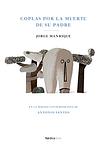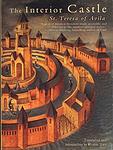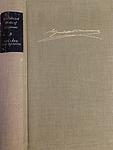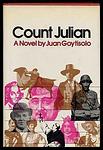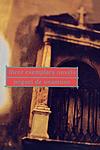The Greatest "Allegorical, Spain" Books of All Time
Click to learn how this list is calculated.
This list represents a comprehensive and trusted collection of the greatest books. Developed through a specialized algorithm, it brings together 300 'best of' book lists to form a definitive guide to the world's most acclaimed books. For those interested in how these books are chosen, additional details can be found on the rankings page.
Genres
Allegorical books are a genre of literature that use symbolic characters, events, and settings to convey a deeper meaning or message. These stories often have a moral or philosophical lesson that is meant to be interpreted by the reader. Allegories can be found in many different types of literature, including novels, short stories, and poetry. They are a powerful tool for exploring complex ideas and emotions, and can be used to comment on social, political, or religious issues. Overall, allegorical books are a thought-provoking and engaging genre that challenges readers to think critically and reflect on the world around them.
The "Spain" category of books refers to literature that is set in or about Spain, its culture, history, and people. This category includes a wide range of genres such as fiction, non-fiction, memoirs, travelogues, and historical accounts. Books in this category may explore the rich history of Spain, its diverse regions, its art and architecture, its cuisine, and its people. They may also delve into the country's political and social issues, its traditions, and its contemporary culture. Overall, the "Spain" category offers readers a fascinating glimpse into the vibrant and complex world of Spain.
Countries
Date Range
Reading Statistics
Click the button below to see how many of these books you've read!
Download
If you're interested in downloading this list as a CSV file for use in a spreadsheet application, you can easily do so by clicking the button below. Please note that to ensure a manageable file size and faster download, the CSV will include details for only the first 500 books.
Download-
1. The Life of Lazarillo de Tormes by Unknown
"The Life of Lazarillo de Tormes" is a novel that follows the life of Lazarillo, a boy of humble origins from Salamanca, Spain, who becomes an apprentice to a series of masters, each representing different aspects of society. The narrative is a critique of the hypocrisy and corruption of the Spanish society of the time, especially the clergy. Lazarillo's experiences and the lessons he learns, often through deception and trickery, serve as a social and moral commentary on the world around him. The novel is considered one of the pioneers of the picaresque genre.
-
2. Life Is a Dream by Pedro Calderón de la Barca
"Life is a Dream" is a philosophical allegory regarding the human situation and the mystery of life. The play follows the story of Segismundo, Prince of Poland, who has been imprisoned in a tower by his father, King Basilio, following a dire prophecy that the prince would bring disaster to the country and death to the King. Basilio briefly frees Segismundo but returns him to the tower when the prince proves violent and unruly. The story explores themes of free will, fate, power and the thin line that separates reality from dreams.
-
3. Coplas por la muerte de su padre by Jorge Manrique
"Coplas por la muerte de su padre" is a collection of elegiac verses written in memory of the author's father. The poems explore themes of mortality, the fleeting nature of life, and the inevitability of death. The author uses his personal grief as a platform to delve into philosophical reflections, ultimately presenting a stoic acceptance of death as a natural part of life. The work is widely regarded as one of the greatest achievements in Spanish poetry.
-
4. The Interior Castle by Teresa of Avila
"The Interior Castle" is a spiritual guide that uses the metaphor of a castle with seven chambers, or 'mansions', to explain the journey of faith. The author describes each mansion as a step closer to God, with the innermost chamber representing union with the divine. The book explores various spiritual concepts such as self-knowledge, detachment, humility, and divine love, providing a roadmap for personal transformation and spiritual growth.
-
5. Our Lord Don Quixote by Miguel de Unamuno
The book presents a philosophical and introspective analysis of the classic literary character Don Quixote, delving into the existential and moral dimensions of his adventures. The author reflects on the nature of reality, the importance of ideals, and the interplay between sanity and madness, arguing that Quixote's chivalric quests and his refusal to concede to the limitations of his mundane world embody a profound and heroic affirmation of human imagination and spirit. Through this exploration, the work becomes a meditation on the human condition and the enduring power of fiction to inspire and give life meaning.
-
6. Guzmán de Alfarache by Mateo Alemán
"Guzmán de Alfarache" is a picaresque novel that follows the life of the protagonist, Guzmán, a rogue who recounts his life story from his humble beginnings to his eventual downfall. Through his narrative, he provides a moralizing commentary on various aspects of Spanish society in the 16th century. The book explores themes of morality, religion, and social criticism, and is considered a precursor to the modern novel.
-
7. La Nuit obscure by Jean de la Croix
"La Nuit obscure" is a profound spiritual poem that explores the journey of the soul from its bodily home to its union with God. The author uses the metaphor of a dark night to represent the hardships and struggles the soul endures in its quest for divine love and ultimate spiritual enlightenment. The poem is a guide for spiritual growth, encouraging individuals to seek purification and detachment from worldly desires in order to achieve a deeper, more intimate relationship with God.
-
8. Monsignor Quixote by Graham Greene
"Monsignor Quixote" is a modern take on the classic Don Quixote tale, set in post-Franco Spain. The story follows a village priest who is elevated to the rank of monsignor through a clerical error, and his friend, the town's ex-mayor who is a staunch communist. The unlikely pair embarks on a journey across Spain, engaging in philosophical debates about faith, politics, and life. The journey and their friendship mirror the adventures of Don Quixote and Sancho Panza, with the narrative exploring the absurdities and contradictions of life, religion, and politics.
-
9. Count Julian by Juan Goytisolo
"Count Julian" is a novel that explores the themes of betrayal, revenge, and cultural identity. The protagonist, an exiled Spaniard, reflects on the history of his homeland, Spain, and its past conquests and losses. He identifies with Count Julian, a historical figure who invited the Moors to invade Spain as an act of revenge against the Visigothic King Roderic. The narrative is a critique of Spanish nationalism and cultural identity, as the protagonist dreams of a new invasion to cleanse Spain of its past and present sins. The book's complex narrative structure, nonlinear timeline, and poetic language make it a challenging but rewarding read.
-
10. Visions by Francisco de Quevedo
"Visions" is a satirical work that delves into the moral and social decay of Spanish society during the Baroque period. Through a series of allegorical and fantastical visions, the author exposes the vices and follies of various social classes and professions. With sharp wit and a critical eye, the text presents a series of dreamlike scenarios where the dead reveal the hypocrisy, corruption, and pretensions of the living. The work is known for its dark humor, rich language, and the use of grotesque imagery to critique the moral shortcomings of humanity, reflecting the author's disillusionment with the world around him.
-
11. Three Exemplary Novels by Miguel de Unamuno
"Three Exemplary Novels" is a collection of three distinct stories that delve into the psychological and moral complexities of human life. Each narrative explores themes of existentialism, faith, and identity through the lives of its characters, who face pivotal moral dilemmas and introspective journeys. The author weaves a rich tapestry of emotion and thought, challenging readers to question the nature of reality, the struggle for authenticity, and the search for meaning in a world fraught with contradiction and paradox. The novellas serve as a profound reflection on the human condition, offering a blend of philosophical insight and poignant storytelling.
Reading Statistics
Click the button below to see how many of these books you've read!
Download
If you're interested in downloading this list as a CSV file for use in a spreadsheet application, you can easily do so by clicking the button below. Please note that to ensure a manageable file size and faster download, the CSV will include details for only the first 500 books.
Download

